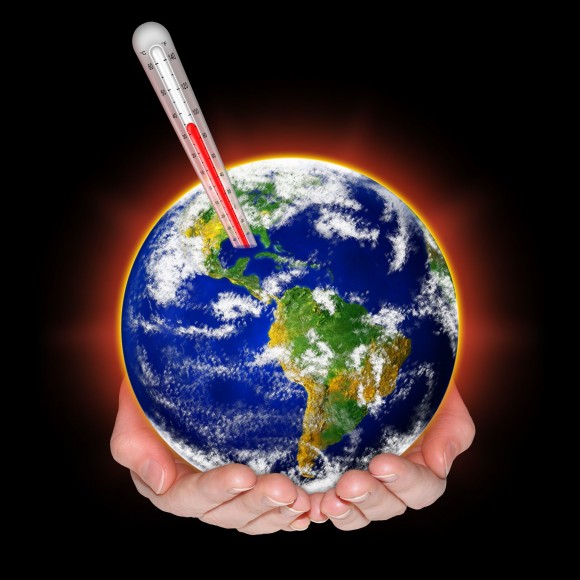Fatih Birol, the head of the International Energy Agency (IEA), faced renewed pressure on Monday from investors and scientists concerned about climate change to overhaul the agency’s projections for fossil fuel demand.
Pension funds, insurers and large companies were among 65 signatories of a joint letter to Birol, seen by Reuters, urging him to do more to support the implementation of the 2015 Paris Agreement to avert catastrophic global warming.
“The year 2020 marks a turning point for the world — the year when we either grasp the challenges and opportunities before us, or continue delaying and obstructing the low-carbon transformation,” the letter said.
The letter represented the first coordinated response by investors, scientists and campaigners pushing Birol to rethink the Paris-based organization’s flagship annual outlook since the latest edition was launched on Nov. 13.
Known as the World Energy Outlook, the document, which runs to hundreds of pages, helps shape expectations in financial markets over how quickly the world could transition from a fossil fuel-dominated energy system to cleaner sources of power.
Since the start of this year, various networks of institutional investors, asset owners, scientists and climate advocacy groups have been urging Birol to change the way the report is produced and presented.
These critics argue that a revised approach could unlock faster investment in renewables and better identify possible risks to the value of oil, gas and coal companies posed by the prospect of rapid action to cut greenhouse gas emissions.
The IEA made several changes to the last edition of the outlook, including providing what officials describe as a more “stringent” scenario showing how the world could fully achieve the goals of the Paris agreement than in the previous edition.
On Monday, Birol said on the sidelines of a panel discussion in Brussels that his organization welcomed feedback.
“We have received several comments and letters from around the world and we are very, very happy about that,” Birol told Reuters. “It brings more responsibility to the IEA as we are shaping the global energy debate.”
‘FULLY TRANSPARENT’
In interviews with Reuters earlier this month, Birol and other senior IEA officials argued that much of the criticism of the outlook was based on misunderstandings over how its scenarios work and what they aim to demonstrate.
Birol also emphasized that the IEA’s wide-ranging research on topics from energy efficiency to offshore wind played an important role in tackling climate change.
Nevertheless, in the letter, sent earlier on Monday, signatories described the new elements in the latest outlook as “minor improvements” that should not be mistaken for delivering “urgently needed substantial changes.”
Signatories are not satisfied, in particular, with the IEA’s work to map out a pathway for achieving the most ambitious goals of the Paris Agreement and urged the organization to produce a “fully transparent” scenario for doing so.
That would include reliably limiting the rise in average global temperatures to 1.5 degrees Celsius above pre-industrial times without banking on early stage technologies to suck carbon from the air, and reaching net zero carbon emissions by 2050.
The signatories want a revised scenario for achieving these targets to form the centerpiece of the next outlook.
Signatories included German insurer Allianz, Switzerland’s Zurich Insurance Group, Danish fund PensionDanmark, Unilever, IKEA, Nordea Life & Pension and Danish utility Ørsted, according to a copy of the letter seen by Reuters.
Climate scientists based in the United States and Europe, former U.N. climate chief Christiana Figueres and Michelle Bachelet, U.N. high commissioner for human rights, also signed.
In a statement emailed to Reuters on Saturday, the IEA said it carefully considered the many comments it received.
“As science, technologies, markets, policies, and costs evolve each year, we take those changes into account in our analysis. We will do so again as we prepare for next year’s edition of the World Energy Outlook,” the IEA said.
(Reporting by Matthew Green; Additional Reporting by Jonas Ekblom in Brussels; Carolyn Cohn, Tom Sims and Stine Jacobsen; Editing by Daniel Wallis and Jane Merriman)
Topics Carriers
Was this article valuable?
Here are more articles you may enjoy.



 Insurify Starts App With ChatGPT to Allow Consumers to Shop for Insurance
Insurify Starts App With ChatGPT to Allow Consumers to Shop for Insurance  State Farm Adjuster’s Opinion Does Not Override Policy Exclusion in MS Sewage Backup
State Farm Adjuster’s Opinion Does Not Override Policy Exclusion in MS Sewage Backup  AI Claim Assistant Now Taking Auto Damage Claims Calls at Travelers
AI Claim Assistant Now Taking Auto Damage Claims Calls at Travelers  Florida Engineers: Winds Under 110 mph Simply Do Not Damage Concrete Tiles
Florida Engineers: Winds Under 110 mph Simply Do Not Damage Concrete Tiles 

